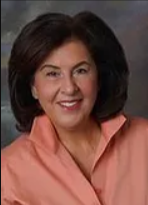Greater Rochester Habitat for Humanity Planned Giving
For more information, please contact:
Ethel Duble
SVP, Major Gifts & Planned Giving
Email: Eduble@GRHabitat.org
Phone: 585-546-1470 Ext. 305
For donations use EIN #13-3281487
(585) 546-1470 • Habitat@GRHabitat.org • 755 Culver Road, Rochester, NY, 14609
Donor-advised funds are investment accounts used for charitable giving. The Tax Cuts and Jobs Act of 2017, greatly reduced the number of individuals who could claim a deduction for charitable giving. A donor-advised fund allows individuals to maximize the tax benefits of charitable giving by bundling—making several years’ worth of charitable donations in the same year to get the total combined amount of itemized deductions.
Donor-advised fund accounts, also known as DAFs, are easy to set up—you make a gift of cash, stocks, bonds or property by transferring your assets to a tax-exempt sponsoring organization, such as a public charity. This qualifies you for an immediate federal income tax charitable deduction for the full value of the gift.
DAFs also afford flexibility—there are currently no rules dictating how much you must spend from your account over a given time period. Some donors spend the funds quickly and replenish them, while others let the money sit and grow tax-free until they are ready to pay it out. Either way, you receive an immediate tax deduction.
Because of its ease and flexibility, some philanthropists prefer a DAF to creating a private foundation, which can be more expensive and involves legal work. Rochester has many public foundations where it is possible to establish a DAF, including the Rochester Area Community Foundation, the United Way of Greater Rochester, the Jewish Community Federation and the University of Rochester. The amount of money you need to start a DAF depends on the sponsoring organization. The administrative costs of setting up a DAF vary from company to company so it is good to compare.
The IRS code dictates that DAF donors can only recommend where they would like their money to go, but say donors are typically allowed to direct where their gifts are distributed—within certain parameters. For example, the nonprofit organization must meet the public charity classifications under the IRS Code. A DAF is a particularly good option for baby boomers who have accumulated assets and want a lasting way to support their favorite charities. With a DAF they can continue to give to their community after they are gone.
A donor-advised account does not meet everyone’s needs. Because a donor receives an immediate tax benefit for the contribution, he or she cannot get the money back—for any reason. It’s a completed gift. There is also the matter of how you like to allocate your giving. The DAF makes sense if you want to distribute charitable donations over time. Donor-advised funds are one option to get your arms around it, but do your research to make sure it’s right for you.

Greater Rochester Habitat for Humanity Planned Giving
For more information, please contact:
Ethel Duble
SVP, Major Gifts & Planned Giving
Email: Eduble@GRHabitat.org
Phone: 585-546-1470 Ext. 305
For donations use EIN #13-3281487
Sign up to get the latest news, volunteer opportunities, and other ways to get involved with Habitat for Humanity.
Flower City Habitat for Humanity DBA Greater Rochester Habitat for Humanity is a 501(c)(3) non profit recognized by the IRS. Tax Id Number 13-3281487.